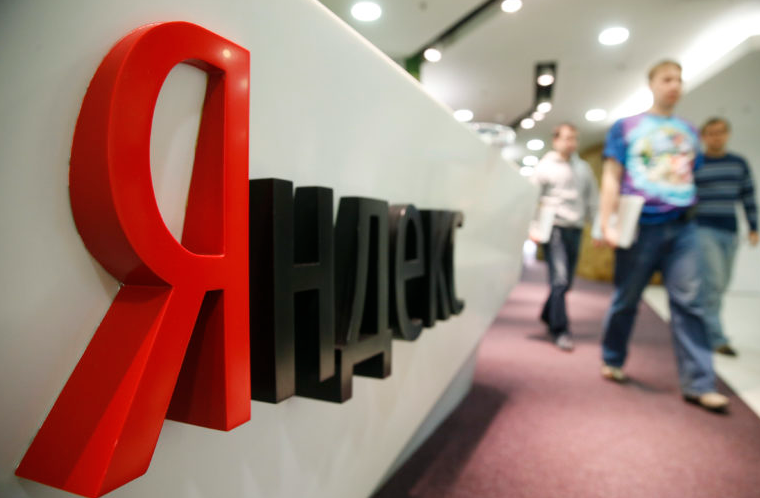You probably have a go-to one, right? For most of the world, it’s the one that starts with ‘G’. But imagine if, in your part of the world, that giant wasn’t the king of the hill. Imagine there was a local champion that knew your streets, your language, and even your cultural quirks better than anyone else.
That’s Yandex for Russia.
If Google is a brilliant, all-knowing librarian, then Yandex Search Engine is that wise, old local shopkeeper who not only knows where everything is but also remembers your name, asks about your family, and can predict what you’ll need next week based on the weather. It’s not just a search engine; it’s a deeply integrated part of daily digital life for millions. So, let’s pull out our digital map and explore this fascinating corner of the internet.
Born from Frost and Complexity: Why Yandex Had to Be Different
Yandex (which stands for “Yet Another iNDEXer”) launched in 1997, around the same time as Google. But Russia presented a unique set of challenges that forced Yandex to evolve differently from day one.
Think about the Russian language for a second. It’s a linguistic maze. Words change their endings based on grammar, gender, and context in a way that makes English look simple. A simple Google-style keyword match often fails. Yandex’s founders knew this. They built an engine from the ground up that understood the morphology of Russian—it could comprehend all the different forms a word could take. It wasn’t just looking for keywords; it was understanding intent and meaning within a highly complex linguistic structure.
This was their first masterstroke. They solved a problem that a foreign engine couldn’t, or at least, wouldn’t prioritize. It’s like building a car specifically for rugged, Siberian roads instead of modifying a sedan. The result? A product that felt native, right out of the gate.
More Than Just Search: It’s Russia’s Digital Swiss Army Knife
Here’s where the story gets really interesting. While Google was perfecting search, Yandex was building an entire ecosystem. You don’t just “Yandex” something; you live your digital life through it.
-
Yandex.Maps: Forget Google Maps. In many Russian cities, Yandex.Maps is not just an alternative; it’s the default. It offers incredibly detailed building outlines, real-time traffic data that feels almost psychic, and even the ability to see public transport routes down to the specific bus number. I have a friend in Moscow who swears by its “People’s Map” feature, where users can add and correct details, making it a living, breathing atlas.
-
Yandex.Music: A Spotify-like powerhouse with a fierce focus on local and CIS artists.
-
Yandex.Market: Think of it as a super-smart price comparison and e-commerce hub that Russians trust implicitly before making any online purchase.
-
Yandex.Taxi: This service utterly dominates the ride-hailing market in Russia and many neighboring countries. It’s their Uber, but more integrated.
The genius here is the synergy. You can search for a concert on Yandex Search Engine, see its location on Yandex.Maps, book a Yandex.Taxi to get there, and listen to the artist on Yandex.Music during the ride. This creates a sticky, self-reinforcing ecosystem that’s incredibly hard to compete with.
The Latest Numbers: Yandex’s Undisputed Reign (and New Challenges)
Let’s get some hard data on the table, because numbers tell a powerful story.
As of the first quarter of 2024, Yandex consistently holds over 60% of the search market share in Russia. Google trails significantly. That’s a dominance that Google doesn’t experience in almost any other major market. This isn’t a fluke; it’s a testament to decades of understanding the local user.
But the landscape is shifting. The geopolitical situation following the events of 2022 created massive waves. Yandex’s parent company sold its Russian assets, effectively splitting the company in two. The “new” Yandex is now a fully Russian-owned and operated company. This has been a seismic event, but it has also reinforced its position as the national champion, insulated from international pressures.
The other big shift is the rise of VK (VKontakte), Russia’s largest social network, which is aggressively expanding its own search and ecosystem. Think of VK as a blend of Facebook and YouTube. They are now a direct competitor. So, while Yandex is the established giant, it’s no longer just fighting a foreign rival; it’s fending off a hungry local one. It’s a corporate drama playing out in real-time!
A Case Study in Local Brilliance: Yandex.Weather
To see Yandex’s magic in action, don’t look at its search bar. Look at its weather app.
Yandex.Weather is a thing of beauty. It doesn’t just give you a temperature and a generic sun or cloud icon. It uses a proprietary “Matrix” technology that analyzes thousands of user-submitted photos from webcams across the country to show you exactly what the weather looks like right now on your street. It tells you not just the air temperature, but the “feels like” temperature, which in a country that swings from -30°C to +30°C, is vital information.
It’s a small feature, but it’s a perfect metaphor for Yandex’s entire philosophy: hyper-local, context-aware, and built for the specific, often harsh, realities of its users’ lives.
What Can We Learn from Yandex?
Even if you never set foot in Russia, there’s a powerful lesson here for anyone in business or tech: deep localization wins.
You can’t just translate your product and expect to conquer a market. You have to immerse yourself in it. You have to understand the language on a grammatical and cultural level. You have to solve the specific, often unglamorous, problems that people face every day. Yandex succeeded because it was built by Russians, for Russians, in a way that a global company based in California simply couldn’t replicate.
So, the next time you type a query into your favorite search engine, take a second to think about the digital giant on the other side of the world. It’s a reminder that the internet isn’t a monolith. It’s a collection of local plazas, each with its own rules, its own heroes, and its own wise shopkeeper who knows everyone’s name. In the vast, sprawling digital nation of Russia, that shopkeeper is, and will likely remain for a long time, Yandex.



